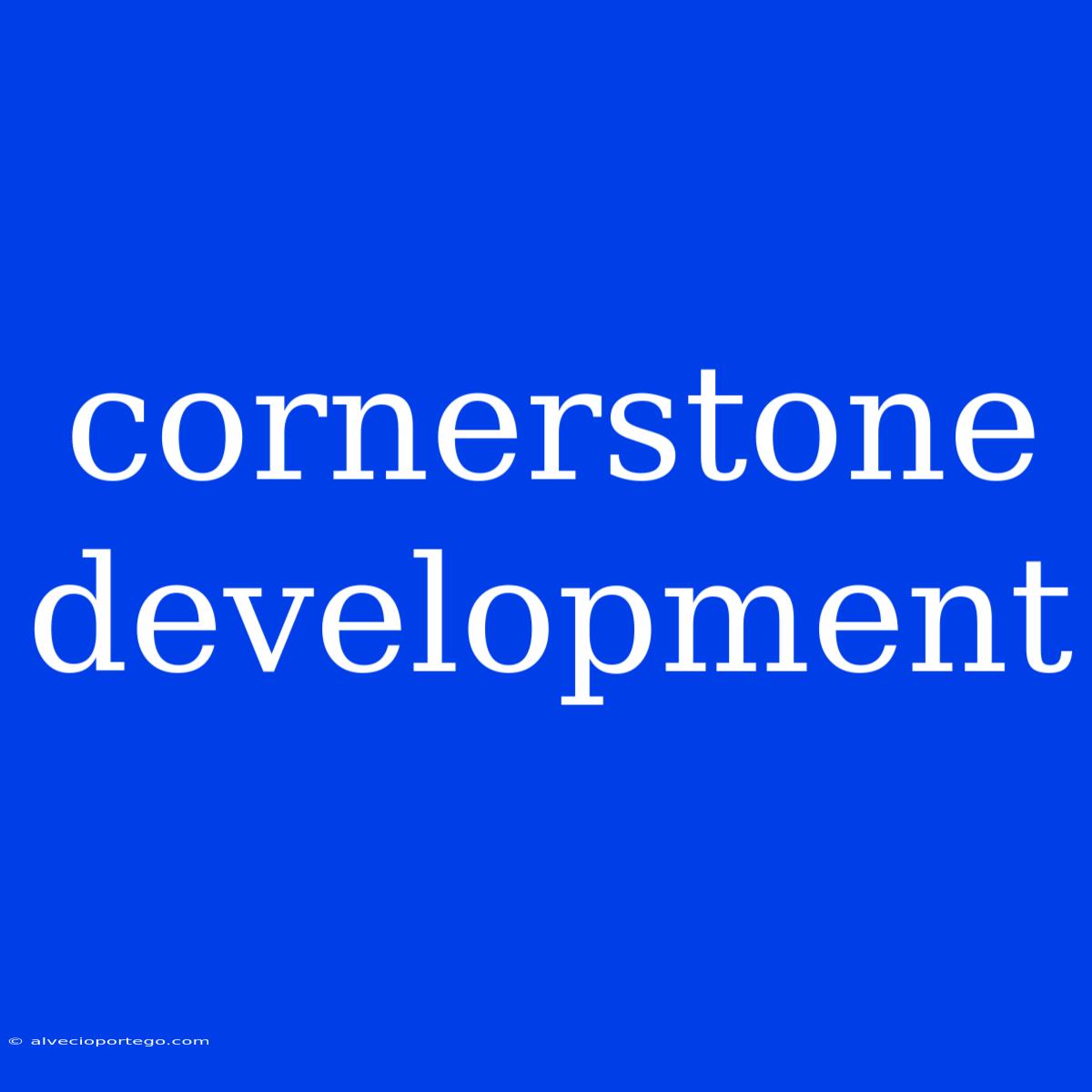Cornerstone Development: Building a Solid Foundation for Success
Cornerstone development, in the realm of software engineering, refers to the process of creating the core functionalities and features that form the fundamental building blocks of a software application. It's like laying the foundation of a house, ensuring stability and strength for the entire structure.
Why is Cornerstone Development Important?
- Strong Base for Future Growth: A well-defined cornerstone serves as a solid base for future development. It provides a stable framework for adding new features, integrations, and functionalities.
- Reduced Technical Debt: By focusing on core functionalities early on, cornerstone development helps minimize technical debt. This debt arises from rushed or poorly planned development decisions, which can make future maintenance and expansion more difficult and costly.
- Improved Project Management: Cornerstone development fosters better project planning and management. By defining the core functionalities, teams can create realistic timelines, allocate resources efficiently, and track progress effectively.
- Early Feedback and Validation: Implementing cornerstone features allows for early testing and feedback from stakeholders, leading to valuable insights for further development.
- Reduced Risk and Uncertainty: By focusing on the essential elements first, cornerstone development helps mitigate risks associated with unforeseen challenges and uncertainties.
Key Principles of Cornerstone Development:
- Prioritize Core Functionalities: Identify and focus on the essential features that make the software valuable and functional.
- Simplicity and Scalability: Aim for a simple and modular design that allows for future expansion and customization.
- Robust Testing: Thoroughly test the cornerstone features to ensure they are stable and reliable.
- Continuous Iteration and Feedback: Incorporate user feedback and iterate on the core functionalities to ensure they meet evolving needs.
Benefits of Cornerstone Development:
- Increased Efficiency and Productivity: By building a solid foundation, future development becomes faster and more efficient.
- Improved Code Quality and Maintainability: Well-defined core functionalities lead to cleaner, more maintainable code.
- Reduced Development Costs: A streamlined development process translates to lower overall costs.
- Enhanced User Experience: Cornerstone development helps create a robust and user-friendly experience.
- Faster Time to Market: By focusing on core features first, companies can bring their software to market sooner.
Conclusion:
Cornerstone development is an essential aspect of software development that ensures a strong foundation for success. By focusing on core functionalities, prioritizing simplicity and scalability, and incorporating continuous feedback, teams can build robust and sustainable software applications that meet evolving market needs.

